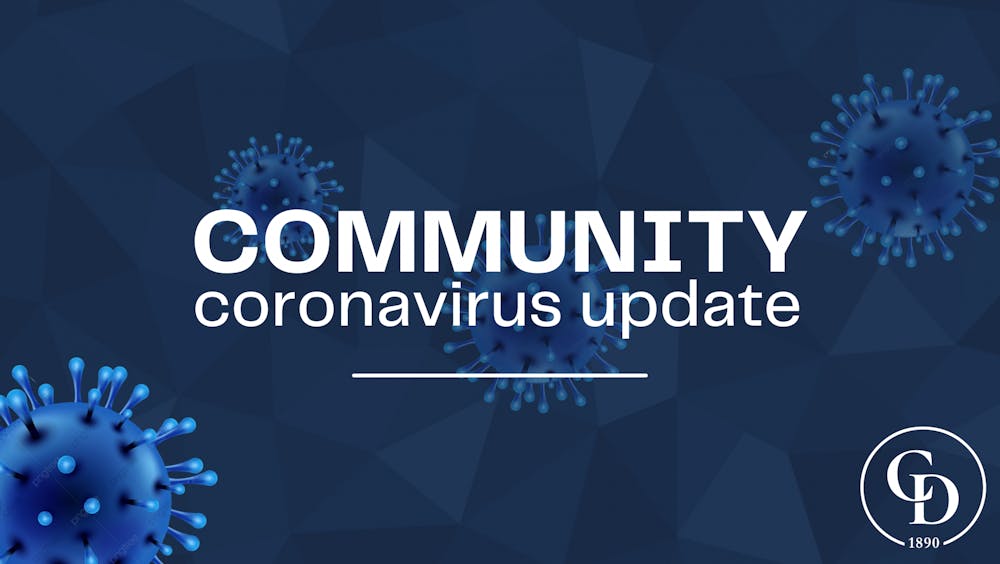COVID-19 cases on Grounds continue to decline following the outbreak that caused the University to heighten restrictions two weeks ago. There were two new cases Wednesday following 12 new cases Tuesday and 13 new cases Monday.
Wednesday’s two cases were both student cases and brought the number of active cases to 227. The University has had 1,406 total student cases and 224 total faculty cases during the spring semester. The University community surpassed the fall’s total case count of 1,548 last week.
The seven-day average positivity for students is currently 0.60 percent, whereas the average for faculty and staff is 0.54 percent — due to the lower number of faculty and staff cases, the overall seven-day average positivity rate is 0.60 percent. The highest positivity rate the University reached during the spike in cases was 4.11 percent on Feb. 20.
Last week, the weekly average of new cases per day dropped rapidly — while the average number of new cases per day was 112 between Feb. 14 and Feb. 20, the number declined to 29 over Feb. 21 to Feb. 27 and to seven between Sunday and Wednesday.
The University’s gathering policy currently limits gatherings to six individuals, and the University administration has encouraged students to remain within social “pods” to limit exposure. In addition, students are required to wear masks outside of their residences.
All students living in the Charlottesville-Albemarle area are still required to report for weekly asymptomatic testing, and faculty and staff have the option to undergo voluntary asymptomatic testing during walk-in hours at testing locations. 2,427 tests were administered to students, faculty, and staff Wednesday, bringing the total number of tests since Aug. 17 to 199,825. It takes U.Va Health an average of 12 hours to process a test and return a result.
The number of occupied isolation and quarantine beds decreased this week to 9 percent of quarantine beds and 3 percent of isolation beds, in comparison to a week ago when 34 percent of quarantine and 20 percent of isolation beds were full.
Hospitalizations are also slightly decreasing, with U.Va. Health admitting six new patients Wednesday. This brings the total number of hospitalizations at U.Va. Health currently to 40. The current seven-day average hospitalization rate is 5.86 hospitalizations per day — in mid-January, the hospital was experiencing a hospitalization rate of around 9 cases per day.
The Blue Ridge Health District also reports that cases are beginning to decline as vaccination efforts increase in the region. The Blue Ridge Health District, which includes Charlottesville and Albemarle County, saw 33 confirmed cases of COVID-19 yesterday and currently has 13,368 total cases. On Wednesday, 26 cases were active in Charlottesville while 27 cases were active in Albemarle.
The Virginia Department of Health continues to urge residents to use a new website released two weeks ago that allows any Virginian to pre-register for the COVID-19 vaccine.
The University’s COVID-19 tracker is updated every weekday at 4 p.m. and the BRHD portal is updated at 10 a.m. daily.







